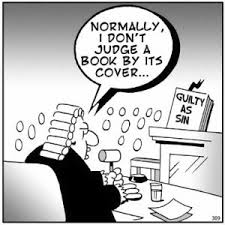For the National Interest Waiver, the Extraordinary Ability and the Outstanding Researcher applications, evidence that you have judged the work of others in your field or a related  field can be extremely helpful. However, the level of helpfulness of this evidence depends greatly on the type of judging and the kind of evidence submitted to USCIS.
field can be extremely helpful. However, the level of helpfulness of this evidence depends greatly on the type of judging and the kind of evidence submitted to USCIS.
First, in terms of the type of judging: What USCIS is looking for is that you judged the work of other scientists. Not Master’s or undergraduate students, not Ph.D. students, but scientists. And then, even if you have reviewed the work of scientists, there are still two levels of evidence: reviews of just postdocs, and reviews of postdocs and others researchers (or just other researchers). If you have just reviewed postdoc work, while it will help, it will not help as uch as if you actually reviewed work of others at a higher level. The reason for this is that USCIS looks at just post-doc reviewing as being a lower level than reviewing the work of other researchers. Primarily this is because a Postdoc is considered to still be in training. Also, Postdocs are at the beginning of their career, so if they are the only ones eligible, you are only judging those people at the beginning of their career and not those in advanced states of their careers. Whether this view is warranted or not, it is the view of USCIS, so it is important to keep it in mind. It is certainly possible to provide evidence to USCIS that, even though you were just judging the work of postdocs it was still extremely prestigious position in the field, but the burden of proof is on you to show this.
Assuming you now have your evidence of reviewing the work of other scientists, the next question is what kinds of evidence will be most helpful to USCIS. There are two kinds of evidence that you can provide USCIS: evidence of WHAT you did and evidence of the IMPORTANCE of what you did. It is important to emphasis that BOTH types are needed for this evidence to be really useful for these cases. The first type of evidence, proof that you actually conducted the judging, proves that you actually performed the act, but it does not show USCIS why it should regard this evidence as helping to show that you have made substantial contributions to the field (National Interest Waiver) or that you have received renown in the field (Extraordinary Ability andOutstanding Researcher). In order to do that you need evidence as to the criteria that was used to select you for that position (evidence of the importance of what you have done). The letter needs to explain the criteria in a way that shows USCIS that you were selected because of your renown, because of the importance of your work to the field, etc. Without this second type of evidence, there is no proof that USCIS can use to show it what the importance of your judging is, and, therefore, this evidence will not help your case get approved nearly as much as it would have had you provided documentation as to the importance of the work.
Please remember, as always, this blog does not offer legal advice. If you need legal advice, consult with a lawyer instead of a blog. Thank you.

